Credit Card Vs. Personal Loan - Which Is Better?
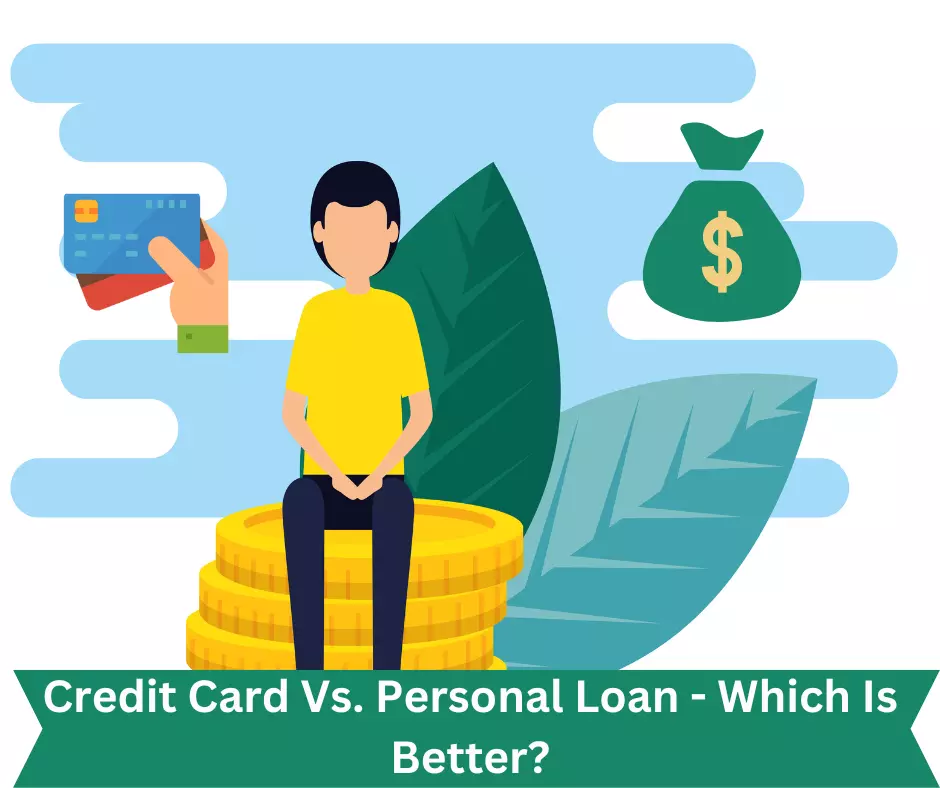
Credit Card Vs. Personal Loan? In times of need, a personal loan and a credit card loan are considered excellent to get money and have many comparable conventional credit arrangements. As a result, they are now a widely available and practical financial instrument.
Both kinds of loans often involve money provided by a loan expert at a set interest rate, regular installments for repayment, penalties for late payments, assurance of demands, and much more. Abuse of any credit type can negatively impact your CIBIL score, making it difficult to apply for home loans, other unsecured loans, and other advantages.
Read More: 7 Factors That Affect Personal Loan Requirements In 2023
However, let's examine the characteristics, advantages, interest rates, market advantages, and strategic financial management of each form of loan support in more detail to understand better what makes each type unique. By the time you finish reading this article, you'll know enough about credit card loans versus personal loans to make an informed decision on any of these.
What Is a Credit Card Loan?
Credit card loans are classified as revolving credit. As long as their record remains good, borrowers with revolving credit typically have continuing access to the predetermined money. In this case, the interest rates are far higher than those on personal loans.
Read More: How To Calculate Personal Loan Interest Rates in 2023?
A personal loan functions differently than a credit card. Although borrowers have access to a fixed amount, they do not receive the entire amount. Here, borrowers can withdraw funds from the banks anytime they see fit, up to the maximum principal amount agreed upon when their credit card was first obtained.
As a credit card user, you will be expected to pay back the interest on the money you use on time to maintain the equilibrium of the giving and receiving cycle. Generally speaking, every type of credit card will have a different method of accruing interest, so it is essential to read over all the information before making a decision. A credit card charge will vary each month, unlike personal loans, where the amount you must back in regular, planned installments is fixed.
Read More: How To Get Personal Loan On Salary Slip In 2023
Benefits of a Credit Card Loan
The following are some of the most well-known advantages of credit card loans:
Easy and seamless approvals
entirely credit card loans are pre-approved loans, meaning they are entirely unsecured. To obtain a credit card in your name, no strict paperwork is needed. All you need to worry about are your credit history, your CIBIL score, and, if you have any past credit history, the unblemished status of your cards.
Easy repayment
You have several options for both online and offline payment when it comes to paying your monthly credit card payments. If you use a card, you have several alternatives for making payments. You may utilise your BHIM/UPI applications, online banking, mobile banking, or even offline methods like OTC or cheque payments. Alternatively, you can choose to have your monthly bill automatically deducted from your savings account, relieving you of the worry of forgetting to pay bills on time.
Read More: How To Calculate Personal Loan Interest Rates in 2023?
Flexible
If you choose a credit card, your money is available right away. Unlike other traditional loans, there are no delays in terms of application questions, processing times, or other such inconveniences. The decision to buy and pay for it later in installments may also be offered to you, allowing you to fully customize the entire procedure to suit your preferences.
Not a surety
Credit card loans are classified as unsecured loans, which essentially implies that no security or guarantee is required at the time of application.
Bonus advantage: Transfer of balance
The majority of banks operating in the market today now provide you the option to pay off your credit card loan in installments by consolidating your outstanding balances from many cards onto a single card. In this sense, you don't have to worry about managing a variety of loans on different records. By using this service, you may pay off all of your debts in equal monthly installments and consolidate them into a single record.
What is a Personal Loan?
A personal loan is a set amount of money that you can borrow and utilise for a variety of needs. You may use a personal loan, for instance, to pay off outstanding debt, finance home renovations, or organise a dream wedding. These days, banks, credit unions, and internet loan experts may offer these loans. The money you borrow must be paid back over time in set interest payments or charges.
A personal loan helps you obtain the money you need to meet your unique daily expenses. It also facilitates the prompt payment of urgent debts, which may then be returned in smaller installments over a certain period of time. When you choose a personal loan over a credit card, you receive a lump sum payment.
Benefits of Personal Loan
The following are some of the most well-known advantages of a personal loan:
Unstressful procedure
You may apply for a personal loan using your bank's online banking system and receive the money right away. You can apply for a loan with a short application procedure and little paperwork needed by visiting the closest branch or ATM of your bank.
Instantaneous acquisition
Pre-approval is available for personal loans; after the application is filed and authorised, the money will be in your account within a maximum of 10 seconds. Numerous applications
The best thing about a personal loan is that it may be utilised for any personal cause, unlike other kinds of loans that have specific usage requirements. The options are unlimited, whether it's for a trip, house remodelling, or organising your ideal wedding.
Documentation made simpler
Compared to most other loan types, a personal loan requires far less desk labour and processing time. With the supporting reports—ID verification, residence verification, and proof of income—you can receive credit. In the unlikely event that you receive preapproval for a personal loan, you might not even need to provide any paperwork.
Easy repayment
Your personal loan can be paid back in manageable installments, or EMIs. The payment terms are usually flexible, allowing you to select a period that allows you to release the cash on a monthly basis based on your availability and comfort level.
Personal Loan Vs. Credit Card
Now that we have a clear understanding of each loan on its own, let's address the important comparison between credit cards and personal loans.
Documentation: Identification proof, proof of address, and proof of income statement are required for personal loans.
When it comes to a credit card, no paperwork is needed.
Interest rates on credit card loans versus personal loans are the primary factor to take into account when taking out any kind of loan. Personal loans often have interest rates between 13-22%, whereas credit card loans include a 10–18% loan charge.
It is important to keep in mind that credit card loans have fixed interest rates, whereas personal loans have lower balance rates.
Unsecured Loan: These two loans are classified as unsecured loans as they don't need collateral or a guarantor.
Tenure: Credit card loans are often taken out for shorter periods of time, with billing cycles that typically begin 28 to 45 days after the funds are used.
For easier EMIs, personal loans are often set for a longer period of time.
Loan Amount: If you occasionally need lesser sums of money, a credit card loan is the best option.
When it comes to personal loans, you should use this option if a larger amount is needed.
You may make a selection based on your financial needs, the length of time you need the advance, and how fast you need it after comparing the two credits. It is easier for you to make the appropriate choice when you are clear about your prerequisite.
When Choosing a Personal Loan is Better?
In the following situations, a personal loan is the best option:
You either don't have a credit card or aren't eligible for one for any reason.
You require a larger amount, but you have no collateral to give.
Suppose you just need the lump sum money for a set, brief period of time—let's say two or three years. Typically, personal loans have terms of 12 to 60 months.
When Choosing a Credit Card Loan is a Good Idea?
If you require a lesser quantity of money, this type of loan is appropriate for you. Credit cards are helpful for making frequent purchases without having to worry about paying them off until the following month. They are ideal for short-term use.
FAQs
Is a credit card loan regarded as a term loan?
An unsecured loan is what a credit card loan falls within. It is a lot like getting a term loan in that you may use the money to pay for daily expenses over a shorter time frame.
How much does it cost to pay off credit cards with a personal loan?
When you are unable to settle the amounts owed on your past-due credit cards, you may take this action. In fact, opting for a personal loan plan with a reduced interest rate and using the same instantaneous amount to pay off overhead expenses is seen to be a wise decision.
Which is better for a credit score—a credit card or a personal loan?
When you make perfect and timely loan payments, both credit card and personal loans can help you improve your credit score. Either way, a personal loan is a better option for raising your CIBIL score because it offers a longer repayment period.
Verify Phone Number
Related Post
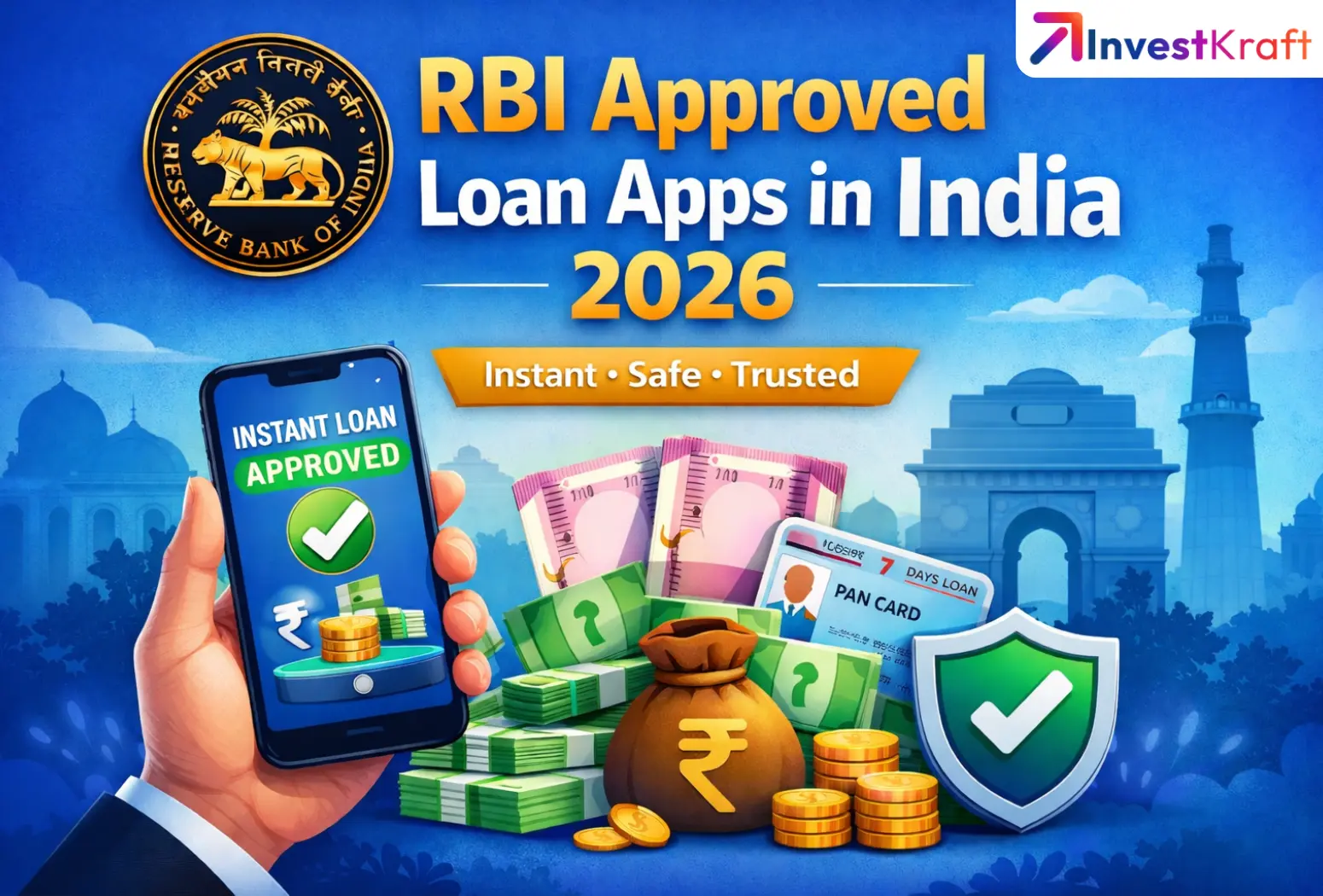
RBI Approved Loan Apps in India 2026: Best Instant & Safe Loan Apps List
Instant loan apps have completely changed how Indians borrow money. Whether you need ₹1,000 ur...
Read more...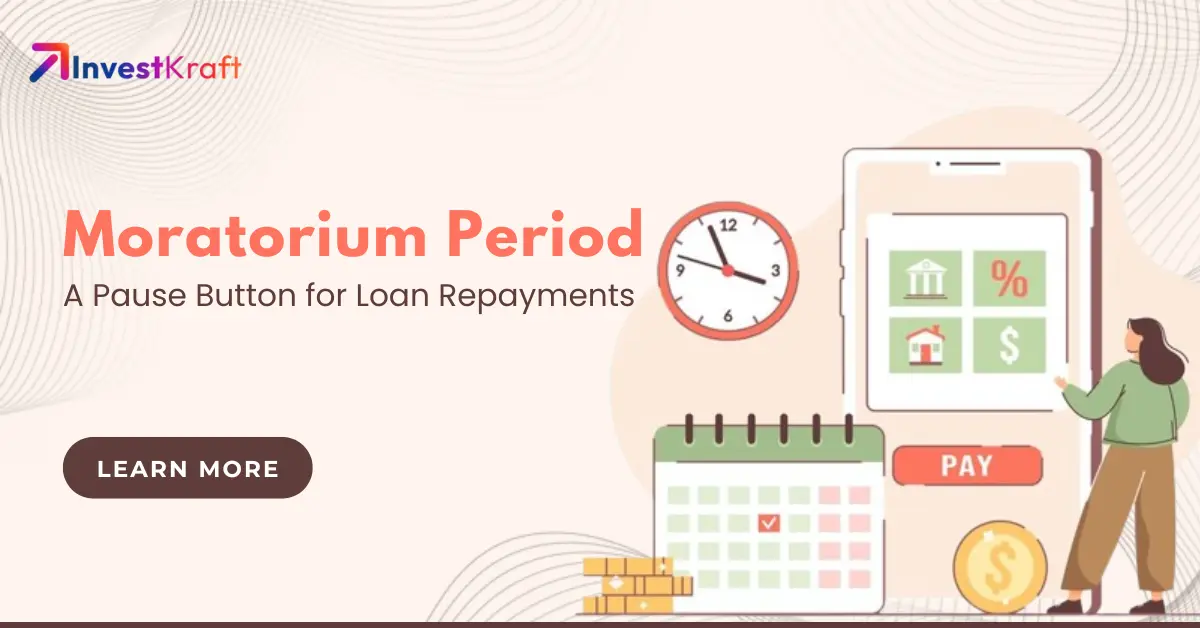
How Does the Moratorium Period Act as a Life Raft for Borrowers?
Financial jargon, whether taking a loan or opening a bank account, can be confusing and tricky. Thes...
Read more...
New to Credit? Stop Worrying and Build Your Credit with These Essential Tips
Establishing and maintaining a healthy credit score can seem overwhelming, particularly for new borr...
Read more...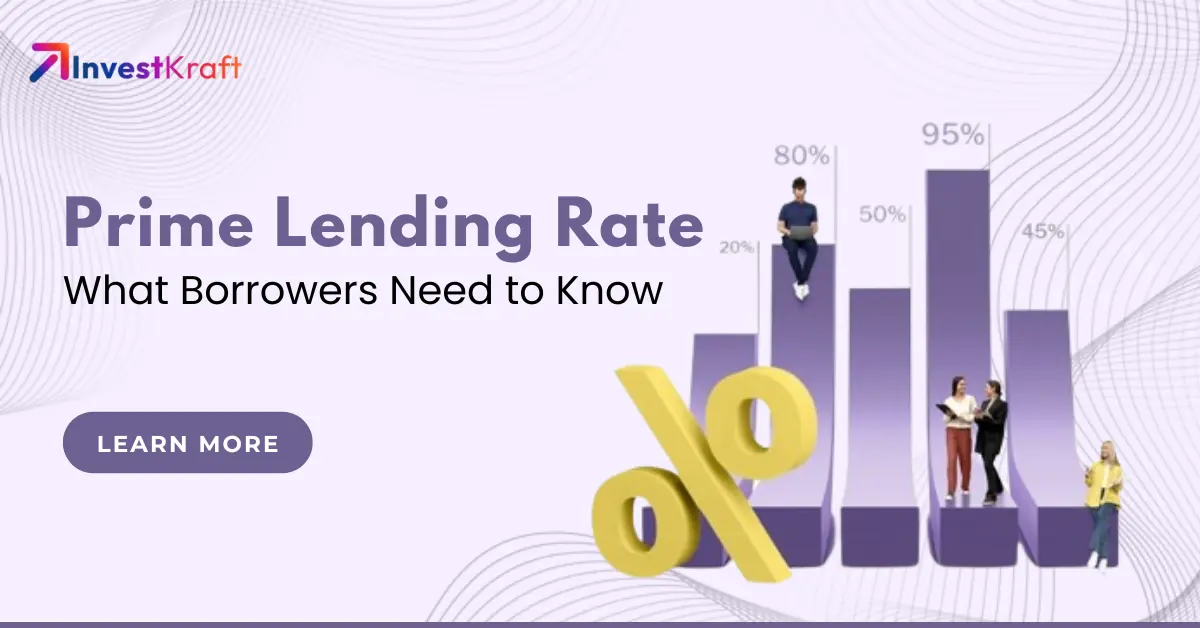
Prime Lending Rate: A Friend or Foe for Borrowers?
When purchasing items on credit, it is common to need a financial investment and many turn to loans...
Read more...
Top 10 Foreign Banks in India 2025
Foreign banks bring crucial international expertise and capital to India’s BFSI industry, benefiting...
Read more...
Top 10 P2P Lending Companies in India 2025
Peer-to-peer lending, or P2P lending, offers a way for individuals to borrow and lend money without...
Read more...
Complete List of Cooperative Banks in India 2025 – Urban & Rural Co-ops Banks
The role of cooperative banks in a rapidly growing nation like India is of crucial importance. The c...
Read more...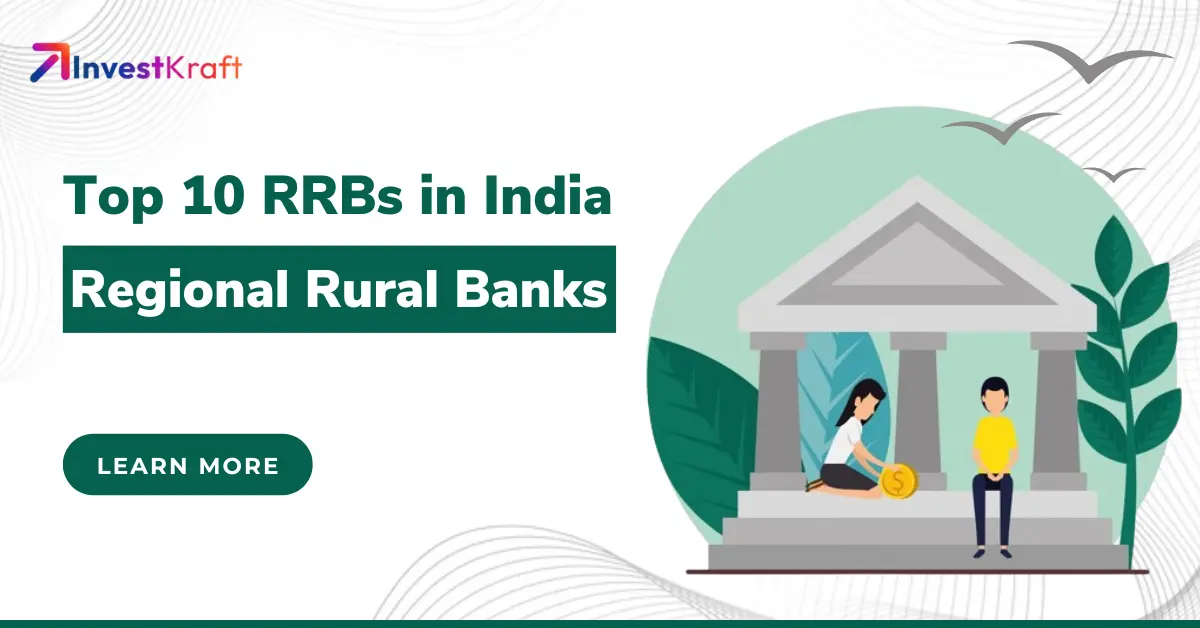
Complete List of Regional Rural Banks (RRBs) in India 2025 – Services & Functions Explained
Established on the recommendations of the Narasimhan Working Group in 1975, Regional Rural Banks (RR...
Read more...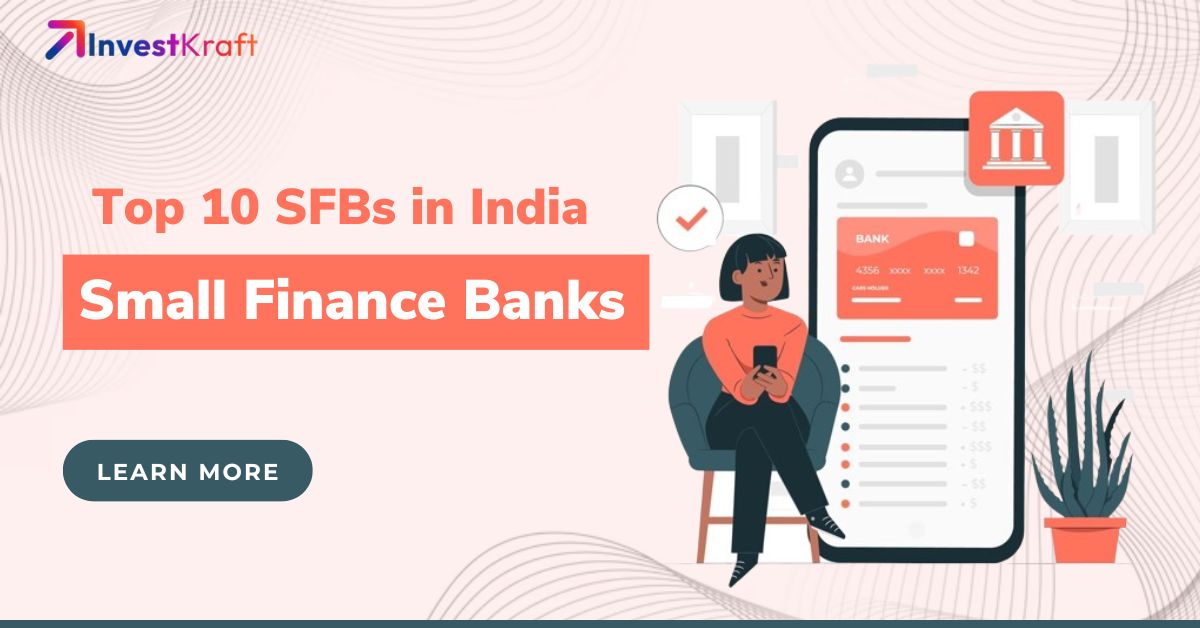
Top 10 Small Finance Banks (SFBs) in India 2025
Small Finance Banks aim to empower marginalized groups in society, including small businesses, margi...
Read more...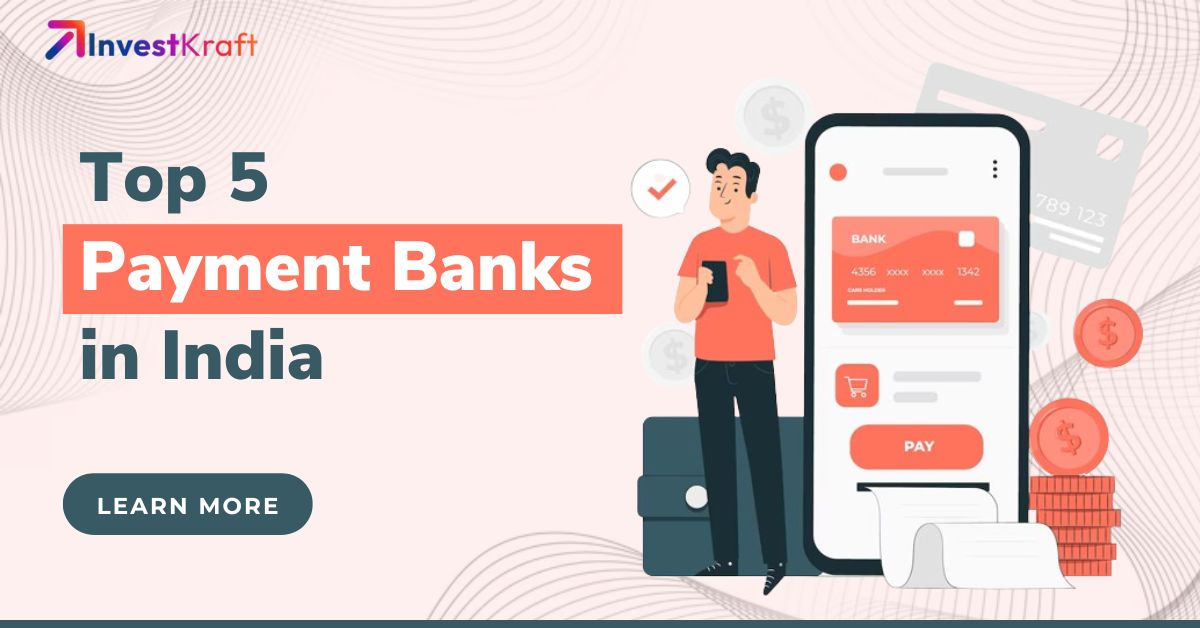
Top 5 Payment Banks in India 2025
In recent years, India's banking landscape has undergone a significant transformation with the adven...
Read more...Reach out to our Experts if you have any Doubts
Like the best things in life, Consultations @InvestKraft are free
Drop a Mail or give us a Missed Call & Begin your Investment Journey here







